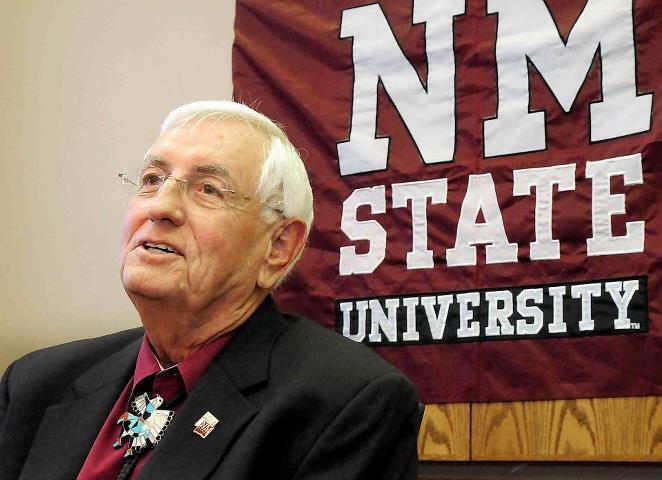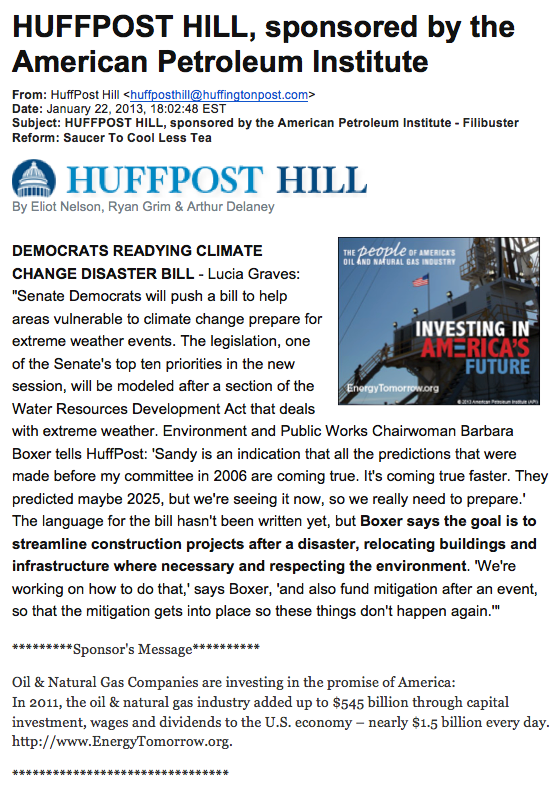The U.S. House of Representatives, after nearly three months of delay,
is finally voting to provide emergency federal aid for the survivors of
Superstorm Sandy. House Speaker John Boehner (R-OH) prevented a vote in
the previous Congress, leaving millions of Americans in the cold and
outraging Northeast Republicans such as Gov. Chris
Christie
(R-NJ) and Rep. Peter
King
(R-NY).
Responding to the public
outrage,
the House voted to approve $9 billion in flood insurance funding in the
first week of January, overcoming the nay votes of 67 Republicans called
“jackasses”
by former Senator Al D’Amato (R-NY).
Yesterday afternoon, the House Rules Committee took up H.R. 152, the
$50.7 billion Disaster Relief Appropriations Act of 2013, critical for
the rebuilding of the regions affected by the freakish storm. In the
meeting, Republicans argued against the emergency support, attacked
labor protections for workers, and praised the
“logic” of
cutting services for the American people to pay for emergency relief
from a fossil-fueled disaster. In the meeting, the committee laid out a
progression of votes at the behest of Tea Party groups like Club for
Growth and David Koch’s Americans for
Prosperity,
which have taken a hard line against disaster relief. Debate on the bill
and amendments is limited to three hours, making it possible that all
votes will take place today.
Below is a summary of the vote
sequence:
: GOOD: Rep. Hal Rogers (R-KY) amendment. After an hour of debate,
the House will consider $17 billion in emergency funding. This
legislation is expected to pass, with only extreme conservatives voting
against.
: BAD: Mulvaney (R-SC), McClintock (R-CA), Duncan (R-SC), Lummis
(R-WY) amendment. Then the House will consider an amendment that
demands $17 billion in mandatory cuts in services for the poor, young,
and elderly. This amendment may garner significant Republican support
and would set a dire precedent for Congressional disaster relief.
: GOOD: Rodney Frelinghuysen (R-NJ) amendment. After 20 minutes of
further debate, the House will vote on the rest of the Sandy relief and
rebuilding package, $33.7 billion “to cover current and anticipated
needs in the wake of the devastating Hurricane Sandy.” This language is
the other key vote. Only about 50 Republicans are expected to support
this key legislation.
Following these three major votes, an additional 11 amendments will be
considered in turn, with 10 minutes of debate for each. There are
multiple “jackass” amendments that cut disaster preparedness and relief
funding from extremist Republicans Reps. Paul Broun (R-GA), John Fleming
(R-LA), Jeff Duncan (R-SC), Bill Flores (R-TX), and Rob Bishop (R-UT).
Broun’s amendment deserves particular attention for its special degree
of jackassery:
: Broun (R-GA) amendment: “Amendment to
FRELINGHUYSEN: Strikes $13,000,000 in funding
to ‘accelerate the National Weather Service ground readiness project.’”
There are two good amendments from Rep. Nydia Velázquez (D-NY) that
provide much-needed funding for community development and veterans’
cemeteries damaged by Sandy. Other amendments, including a submission
from Rep. Henry Waxman (D-CA) to consider man-made sea level rise, were
ruled out of order.
Important provisions to help the many climate disaster victims of 2012
prepare for our dangerous
future
are being attacked as “pork.” The opposite is true. The Frelinghuysen
bill already eliminates much-needed support for many climate disaster
survivors around the nation. Tea Party activists are pushing for even
further cuts.
Republicans have held up this emergency spending for nearly three months
because they say the U.S. can’t afford to help victims of climate
disasters – but they refuse to make Big Oil pay even a share for the
damage their pollution has caused. These same legislators were willing
to shut down the government to protect tax breaks for billionaires.
Of the 67
Republicans
who voted against the initial disaster relief, only one, Rep. Steve
Palazzo (R-MS), has publicly changed his
vote
after a visit to Long Island and New Jersey. The remaining “jackasses”
include 18 freshmen and at least 36
Republicans
who have previously demanded emergency disaster relief for their
constituents, but are now obeying the heartless
commands
of carbon billionaire David Koch, the wealthiest man in New York
City.
 In the wake of Superstorm
Sandy, New York City’s flagship public television station,
WNET, has dropped the richest man in New York,
carbon pollution billionaire David Koch, from its board of trustees.
Days before the monthly board meeting on May 16, Koch’s name was
removed from the WNET
website. Koch had been a board member
since
2006.
Koch has been funding WNET since
1986.
In the wake of Superstorm
Sandy, New York City’s flagship public television station,
WNET, has dropped the richest man in New York,
carbon pollution billionaire David Koch, from its board of trustees.
Days before the monthly board meeting on May 16, Koch’s name was
removed from the WNET
website. Koch had been a board member
since
2006.
Koch has been funding WNET since
1986. By a 3-2 vote on Monday, May
6, the New Mexico State University Board of Regents selected Garrey
Carruthers, who
By a 3-2 vote on Monday, May
6, the New Mexico State University Board of Regents selected Garrey
Carruthers, who  On Friday, the City of New
York allocated
On Friday, the City of New
York allocated  On Monday at 4 pm, the New
Mexico Board of Regents is prepared to hold a
On Monday at 4 pm, the New
Mexico Board of Regents is prepared to hold a 

